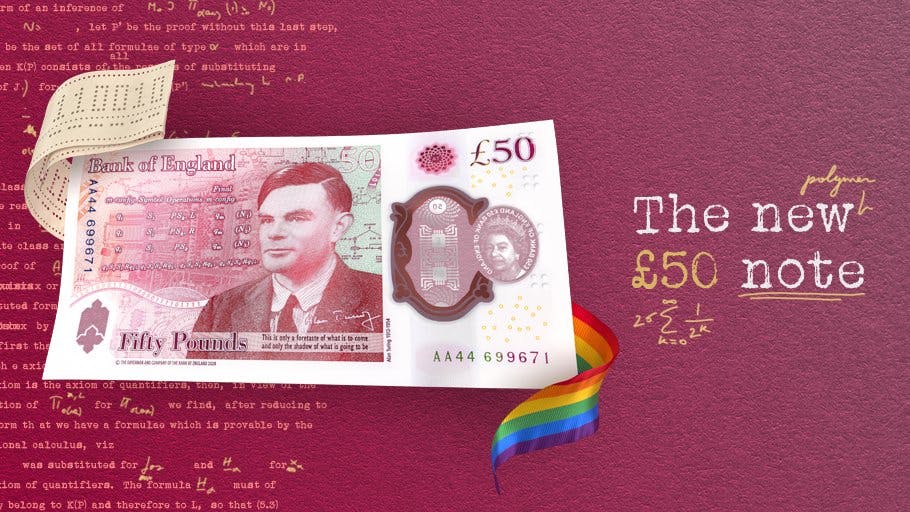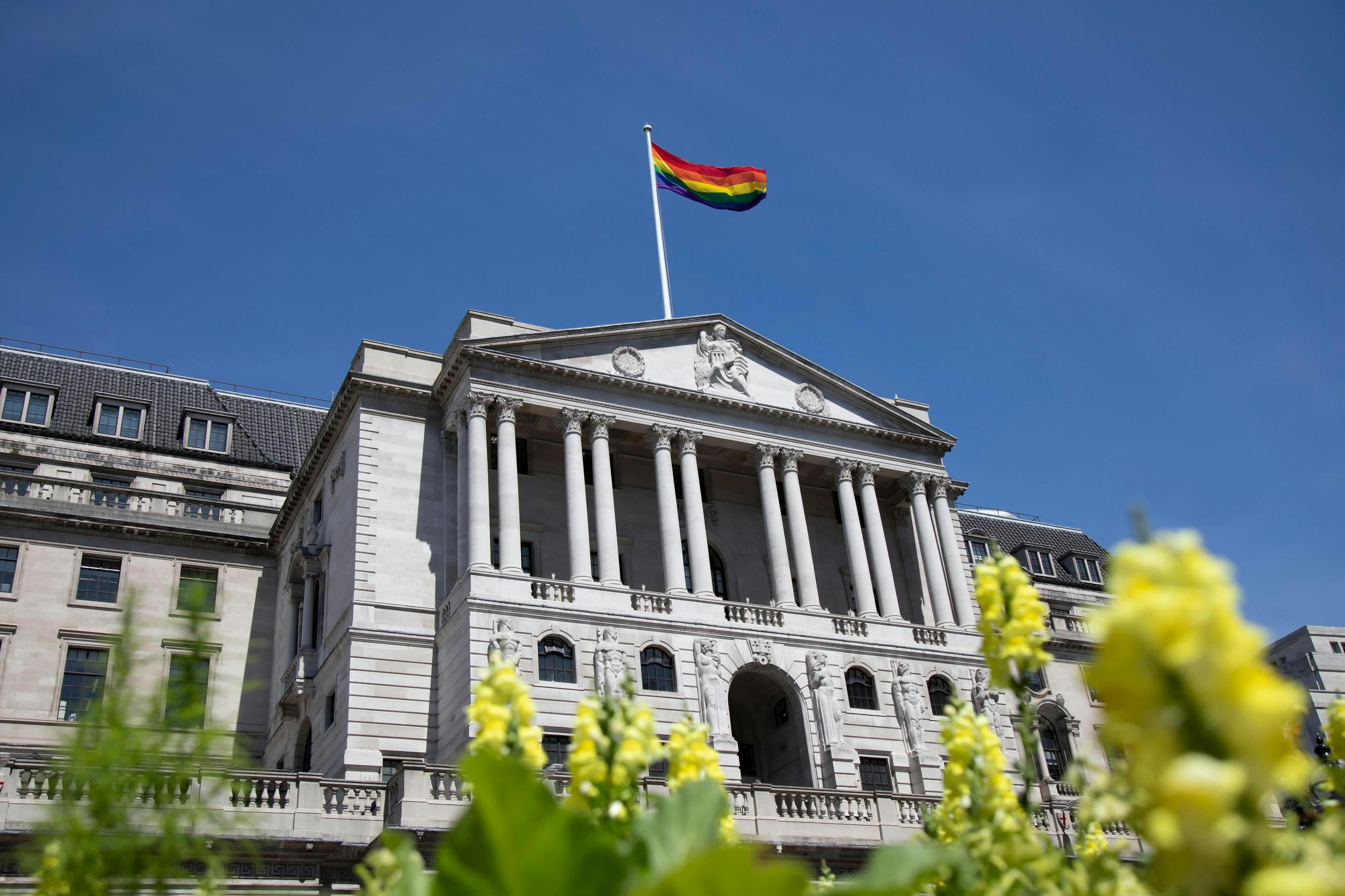
Pride in British Cash
Today, the Bank of England launches its new £50 note, celebrating Alan Turing: the father of modern computing and a gay icon. Marking his birthday, and falling in Pride Month, the note is a world first for the LGBTQ+ community, and a milestone in the ‘queer cash’ movement that traces its roots back to 1990s Britain.

Source: @bankofengland, Twitter
Born in 1912, Alan Turing published a revolutionary paper in 1936 that introduced the concept of a ‘Universal Machine’ capable of decoding and performing any set of instructions, now recognised as the foundation of computer science. He later designed the Automatic Computing Engine—a stepping stone in the development of modern computers—and explored the philosophy of whether machines can think, which became a landmark in the field of Artificial Intelligence. He was also a key figure in cracking the Enigma Code at Bletchley Park, an achievement that helped shorten the Second World War.
In 1952, Turing pled guilty to a charge of gross indecency related to homosexual acts—then illegal in the UK—and was barred from working for the British security services, and punished with a course of hormone treatments that effectively amounted to chemical castration. His death two years later by cyanide poisoning was ruled a suicide.
In 2009, then-Prime Minister Gordon Brown apologised for the ‘appalling’ treatment he received from the Government, and in 2013 Queen Elizabeth II signed a pardon for his conviction that led to the introduction of Turing’s Law, a process by which gay and bisexual men convicted under historic anti-gay laws could apply for an official pardon. The Bank of England celebrated its announcement of the Turing banknote design in March 2021 by flying the rainbow ‘gay pride’ flag over its London headquarters.

Rainbow flag flying over the Bank of England, March 2021 | Source: @bankofengland, Twitter
While the Turing note is the first official recognition of an LGBTQ+ hero, the queer community of 90s Britain launched their own campaign to raise awareness of the so-called Pink Pound—meaning money circulating in the economy thanks to gay people—and in turn promote tolerance and equality in the face of ongoing discrimination. Rubber stamps bearing the words ‘Queer Cash’ were made and used to stamp notes passing through the queer community. A similar campaign in the United States is evidenced by a late 20th century $50 note, countermarked in purple with the words ‘Lesbian Money’. This resides in the Coin Room of Oxford’s Ashmolean Museum, alongside the British stamp, which was donated by Marcus Banks, Professor of Visual Anthropology and a Fellow of Wolfson College.
I bought the ‘Queer Cash’ rubber stamp, together with an ink pad, at a stall at what perhaps was the first ever ‘Gay Business Show’ in London sometime in the mid-90s... I used it enthusiastically for the first week or so, but felt self-conscious handing the notes over to shopkeepers and bus drivers.
Today’s release of the new £50 banknote—the final British note to benefit from the latest, cutting-edge cash technologies to confound counterfeiters—is doubly appropriate, marking exactly 109 years since Turing’s birth, and also Pride Month, which celebrates and promotes visibility of people of all sexual orientations and gender identities.
